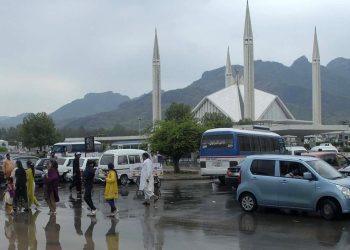Under the British government’s new visa policy, applicants from countries whose nationals frequently seek asylum or overstay their visas in the UK — including Pakistan and Nigeria — may face new restrictions, according to British media reports.
According to a report in the British newspaper The Times, the UK’s Ministry of Defence is considering a new plan under which it may become more difficult for citizens of countries like Pakistan, Nigeria, and Sri Lanka to come to the UK on study or work visas.
Officials believe the bigger issue is with those who arrive legally on work or study visas and later apply for asylum. If their asylum request is approved, they can reside in the UK permanently, as reported by BBC. A spokesperson for the Home Office stated that the upcoming immigration white paper will present a complete plan to fix the broken immigration system.
The report also notes that the British Home Office has not published statistics on visa holders leaving the country since 2020. The reason for this is an ongoing review to assess the accuracy of those figures.
Most people who leave the UK are not tracked. This means many individuals who have no recorded departure may still be residing in the country. Professor Jonathan Portes, a senior researcher at the University of London’s think tank ‘UK in a Changing Europe’, said that the impact of these visa restrictions on reducing the number of asylum applications will “likely be very minimal.”
Speaking on BBC Radio 4, he said: “I think this step is not to reduce overall numbers, but to stop those asylum applications that are viewed as an abuse of the system.”
“When someone comes to the UK on a student visa and immediately changes their status to refugee, that’s an abuse of the system, and the government is trying to stop exactly that.”
After becoming Prime Minister last year, Sir Keir Starmer reaffirmed his commitment to reducing both legal and illegal immigration. However, he has so far refrained from setting a target for net migration. He stated that setting limits in the past has not been beneficial.





































